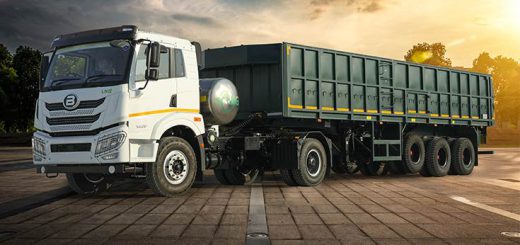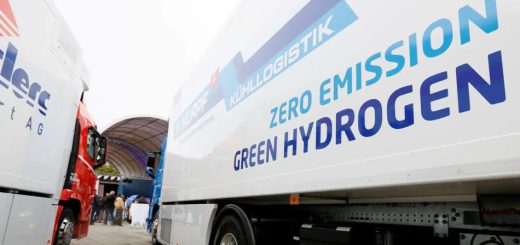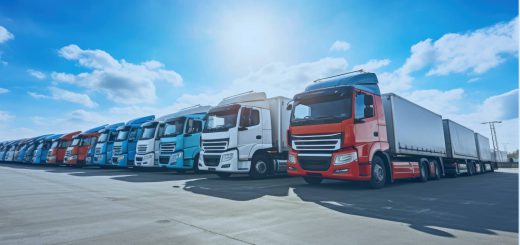Electric Trucks: The Next Frontier in Transforming Transport
The global automotive industry is undergoing a significant shift towards electric vehicles (EVs), driven by the urgent need to reduce carbon emissions and rapid technological advancements. While electric cars and bikes have gained considerable attention, the electrification of heavy-duty trucks represents a crucial next step, especially for countries like India. The transport sector is the fastest-growing source of carbon emissions, with road transport accounting for 90% of the sector’s final energy consumption. In India, trucks make up only 2% of on-road vehicles but are responsible for about 40% of emissions and fuel consumption from road transport. This stark statistic raises the question: Will zero-emission electric trucks become the next frontier for India’s automotive industry in pursuit of net-zero goals?
Environmental and Economic Benefits
Electric trucks offer significant environmental benefits. They can substantially reduce carbon footprints, improve air quality, and contribute to India’s climate goals. Electric trucks are more energy-efficient than diesel engines, converting a higher percentage of energy from batteries to propulsion. A determined transition to zero-emission trucks could lead to 2.8-3.8 gigatonnes of cumulative CO2 savings through 2050, equivalent to or greater than India’s current annual economy-wide greenhouse gas emissions.
Economically, adopting electric trucks can significantly reduce India’s energy needs and lower reliance on imported oil. Road freight currently accounts for over 25% of oil import expenditures and is expected to grow fourfold by 2050. Zero-emission truck adoption could eliminate a cumulative total of 838 billion liters of diesel consumption by 2050, potentially reducing oil expenditures by Rs 116 lakh crore through 2050.
However, the development of green energy sources to power charging stations is crucial. Without this, the environmental benefits of electric trucks could be undermined by continued reliance on fossil fuels for electricity generation.
Driver Enthusiasm and Industry Transformation
Interestingly, over 80% of truck drivers have shown enthusiasm for trying out electric trucks, according to an initiative called Nayi Soch Ki Sawaari. Drivers cite potentially better driving experiences with clutch-free drive and modern air-conditioned cabins as prime reasons for their interest. Many also appreciate the opportunity to contribute to a cleaner environment for future generations. Some even point out that charging time would ensure necessary downtime during long hauls.
The transition to electric trucks also presents a unique opportunity to address gender disparities within the automotive and logistics industries. Traditionally male-dominated, these sectors can benefit from policies and initiatives that encourage greater gender diversity and inclusion. This shift might even help improve the driver-to-truck ratio, which currently stands at 750 drivers for every 1,000 trucks.
Also Read:- India Begins Operationalizing First Leg of IMEC Economic Corridor
Challenges and Opportunities
Despite driver enthusiasm, convincing fleet owners will require addressing several concerns. Range anxiety, myths about safety and performance, high upfront costs, inadequate charging infrastructure, and other apprehensions need to be addressed for widespread adoption.
However, these challenges also present opportunities for innovation and collaboration. Advancements in battery recycling and second-life applications can create new industries and job opportunities. The development of localized charging solutions can spur technological innovation and entrepreneurship.
The Road Ahead
The success of electric trucks hinges on a comprehensive and reliable ecosystem. The transition to electrification will require a concerted effort from all stakeholders, including manufacturers, fleet operators, government agencies, and industries.
Manufacturers must focus on producing vehicles that meet the specific needs of the Indian market, such as dealing with diverse road conditions and heavy loads. Government bodies should facilitate this transition through supportive policies, incentives, and infrastructure development. Fleet owners and operators need to be educated about the long-term economic benefits and operational efficiencies of electric trucks. Drivers should be trained to handle the new technology, ensuring safety and optimal performance.
Overall electric trucks represent a promising solution to reduce emissions, improve energy efficiency, and transform the transport sector. While challenges exist, the potential benefits for the environment, economy, and society are substantial. As India moves towards its net-zero goals, the electrification of heavy-duty trucks could play a pivotal role in shaping a sustainable future for the country’s transport industry.
Source By:- https://www.news18.com/




Recent Comments